Reflecting on their lived struggles and triumphs, panel members share their experience with students

Aiman Faruqi (’23) was working a shift in the emergency department as part of his clinical rotations when he met a patient who presented to the ED with post-surgical complications. As he took her medical history, Aiman recalls thinking that her voice sounded extremely familiar. When she shared that she was a nephrologist with lupus, he made the connection. That patient was Carolyn Cacho-Bowman, MD, now retired, who participated a year before on a CCLCM panel discussion about disabilities, where she shared her experiences navigating a career as a physician with lupus. She also told Aiman that she is legally blind.
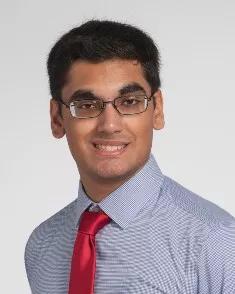
Image content: This image is available to view online.
View image online (https://assets.clevelandclinic.org/transform/b6cf3ad6-970a-4a74-8588-374cbe4ff43c/Faruqi_Aiman_Z74347-1_jpg)
Aiman Faruqi
“Despite the unfortunate context of our meeting, I sensed she was also pleasantly surprised by the coincidence,” says Aiman, who himself is visually impaired.
Shortly thereafter, Aiman was invited to participate on a second disabled caregiver panel, as part of CCLCM’s Art and Practice of Medicine (APM) course, which was held virtually on Dec. 8, 2020. He was delighted to see that Dr. Bowman would again be participating.
“Mindful of respecting her privacy, I did not intend to share our meeting in the emergency department during the panel. However, Dr. Cacho-Bowman immediately recognized me and shared the story of our reunion. I was especially touched by her kind words about my approach to evaluating her in the emergency department,” says Aiman, who hopes that his lived struggles and triumphs in the context of his disability make him a more compassionate physician.
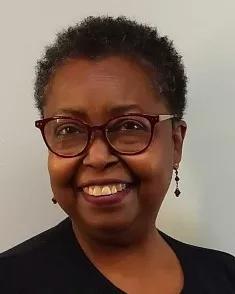
Image content: This image is available to view online.
View image online (https://assets.clevelandclinic.org/transform/be380415-c4af-4306-81f2-404553b9fc7d/Carolyn-Cacho-Bowman_235_jpg)
Carolyn Cacho-Bowman, MD
Having had systemic lupus since she was 18, Dr. Cacho-Bowman knows what it’s like to be on the patient end of the doctor-patient equation. “I’m happy to pass on to a new generation my experiences with doctors, which weren’t always good. Invariably it was something small; not the doctor’s knowledge, but something more basic. What’s important is to turn knowledge into empathy to understand what the patient is going through,” she says.
Dr. Cacho-Bowman describes how one of her favorite physicians really listened to her and asked probing questions. He paid attention to small details — ones that ultimately were important — that other physicians dismissed. His care directly influenced how she approached her patients, she says.
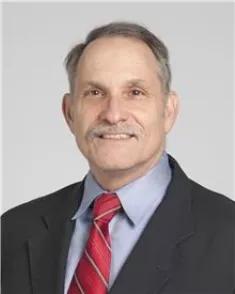
Image content: This image is available to view online.
View image online (https://assets.clevelandclinic.org/transform/9210a94c-6b97-4205-9b46-5dd910f2e35c/Marvin-Natowicz_jpg)
Marvin Natowicz, MD, PhD
Incorporating disability studies into the curriculum
Most medical schools offer some form of disability studies, but not many make it part of the curriculum as does CCLCM. Disability studies and themes are woven organically into the program’s APM course for years 1 and 2 students. First introduced by Marvin Natowicz, MD, PhD, Professor of Pathology, disability studies at CCLCM has evolved to become a fundamental area of focus, and Dr. Natowicz continues to lead CCLCM in incorporating disability studies into the curriculum.
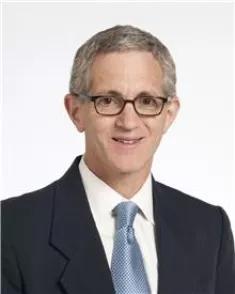
Image content: This image is available to view online.
View image online (https://assets.clevelandclinic.org/transform/43f82d50-5cfa-4e33-958b-a31153b1967c/Eric-Kodish_jpg)
Eric Kodish, MD
“I believe the commitment to disability studies at CCLCM is unusually strong among medical schools,” says Eric Kodish, MD, Professor of Pediatrics and Co-Director of APM 1 and 2. “There has been a dramatic and positive change in society’s view of disabled individuals, and the focus has shifted from blaming the victim to modification of the lived environment to create more equity. I view this as an important component of our anti-oppression curriculum and hope that it will help equip our students to become effective advocates.”
The disabled caregiver panel is just one component of the first APM course for year 2 students. Titled “Mortal Bodies/Wounded Healers,” this 10-week block that opens year 2 APM supports the general year 2 curricular focus of pathology. In addition to the disabled caregiver panel, the block includes humanities and arts content that directly relates to the problem-based learning (PBL) cases from the Neurosciences 2 and Behavioral Sciences courses as well as additional sessions led by Dr. Natowicz on “The Meaning of Disability” (including a patient panel), a book club discussion dealing with physician identity formation (“Black Man in a White Coat: A Doctor’s Reflections on Race and Medicine” by Damon Tweedy), and a writing assignment that helps students synthesize the presentations and readings through critical personal reflection.
“We wanted to make the first phase of their second year a turning point, a deep and meaningful experience for them. All the components are woven together in an intentional, thoughtful way that provides a big impact on students,” says Martin Kohn, PhD, recently retired Director of the Program in Medical Humanities, adding that the disabled caregiver panel served as the anchor to a rich block of work that helps to further open up students to multiple perspectives on the art and practice of medicine.
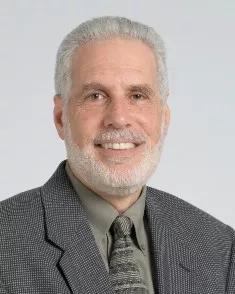
Image content: This image is available to view online.
View image online (https://assets.clevelandclinic.org/transform/125a6cdd-be74-4dea-a9bc-ef96c5ec6e7c/Kohn_Martin_843945_235_jpg)
Martin Kohn, PhD
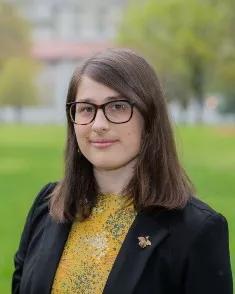
Image content: This image is available to view online.
View image online (https://assets.clevelandclinic.org/transform/e2e8613a-580c-4f36-9da7-33b838c53c86/Stephanie-Larson_jpg)
Stephanie Larson, PhD
Stephanie Larson, PhD, a Bioethics Fellow at Cleveland Clinic with deep experience with and education in disability studies, says that many medical students are taught only about the medical model of disability, in terms of pathology and cures.
“Disability studies, on the other hand, focuses on the cultural and social models of disability, how people with disabilities exist in the world and how disability is part of an identity and culture that don’t necessarily need to be fixed,” she says. “The important aspect of the disabilities panel is that the participants are part of the disability community and have lived experience. They can speak to important things to be considered.”
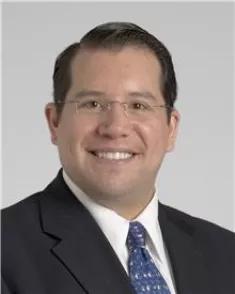
Image content: This image is available to view online.
View image online (https://assets.clevelandclinic.org/transform/7c15c294-d5ce-4730-a287-73998c4e2aa6/Moises-Auron_jpg)
Moises Auron, MD
Disability doesn’t limit success
Cleveland Clinic physician and Associate Professor of Medicine and Pediatrics Moises Auron, MD, accepted the invitation to participate in the most recent disabled caregiver panel along with Dr. Cacho-Bowman and Aiman. Dr. Auron, who has bilateral sensorineural hearing loss, says he is always happy to speak with people who have disabilities to encourage them to achieve their dreams.
“Having severe hearing impairment is not a barrier to success,” says Dr. Auron, who spends time not only educating medical students and colleagues, but also coaching and mentoring them. (In 2020, he received the Susan J. Rehm Inspiration Award from the Cleveland Clinic Center for Excellence in Coaching and Mentoring, receiving an unprecedented 48 nominations for the award, which is given to recognize those who inspire others and the organization, and those in healthcare around the world to be the best version of themselves.)
So that he can more effectively communicate with patients and fellow caregivers, Dr. Auron, within the context of hearing loss as well as having a foreign accent (he was born and raised in Mexico), has taken accent-reduction classes. He also has worked diligently to enhance his communication and listening skills. “I have enhanced the way I empathize with patients by rephrasing what they say and learning how to read body language. I’ve also learned to sit down and stay quiet — to listen to them uninterruptedly — which allows my patients to be able to share what matters and to feel heard. The entire quality of the physician-patient communication has been improved.”
Dr. Auron’s advice to medical students with disabilities is this: Rather than dwell on your disability, use it to become more empathic, more sensitive to others. Don’t let it define you.
Aiman agrees, adding that there are many more important aspects of both his personal and professional identity, such as his passions for teaching and technology. “My decision to pursue a career in medicine was not influenced by my physical disability, though I understand other individuals with disabilities may place a different amount of weight on their disability in defining both their personal and professional selves. I think the key is to never assume an individual with a disability has incorporated that as part of their core identity and to instead let the individual’s own wishes and actions shape your perception,” says Aiman.
Of course, some disabilities present more of a challenge in terms of achieving a dream. For example, because of his vision impairment, Aiman knows he likely could not become a vascular surgeon. That said, his parents raised him and his older brother, who shares his condition and is a soon-to-be attending oncologist, to never let their visual limitation prevent them from striving for excellence, advice that Drs. Cacho-Bowman and Auron agree with.
Disability doesn’t have to limit one’s success. The key is to manage what one feels comfortable doing. Speaking about the disabilities panelists, Dr. Cacho-Bowman says that “Each of us have acknowledged our challenge and have sought solutions and set goals within the confines of our disability,” adding that, for her, a positive outlook always leads to a solution.
For example, she found enormous benefit through physical and occupational therapists as well as nurses. “I simply could not have been successful as either a doctor or a patient without them,” says Dr. Cacho-Bowman.
Holding the disabled caregiver panel is important so that medical students develop a new way of viewing disability. For medical students with a disability, hearing from and seeing others with a disability — particularly fellow students and physicians — help them feel that they belong and that they can have a successful future in medicine.